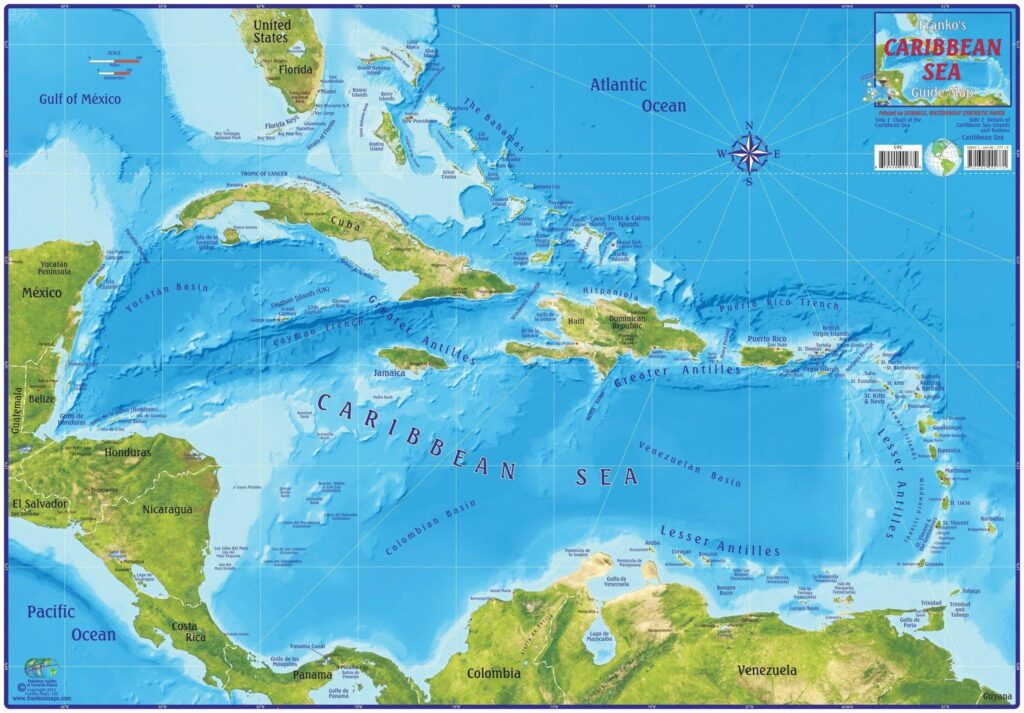Case Study: Digital Development in the Caribbean

The Caribbean region has been making significant strides in digital transformation to improve governance, economic growth, and citizen services. Many countries have embraced digital initiatives to enhance efficiency, transparency, and accessibility of public services. These efforts align with global trends in e-government, smart economies, and digital inclusion. The Caribbean’s digital transformation journey continues to gain momentum, with countries like St. Lucia setting a benchmark for e-government success. As the region advances in areas such as fintech, cybersecurity, and digital inclusion, the integration of emerging technologies will play a crucial role in shaping a more connected and resilient Caribbean society.
GDN Conversation Series: Digitizing Citizen Services & Credentials in the Caribbean – A Regional Perspective
In this GDN Conversation Series Webinar we discuss practical implementation strategies, governance considerations, and the potential for regional collaboration in creating digitally accessible, secure, and inclusive services for Caribbean citizens.
Presenters:
- Marlon Narcisse, Director, Public Sector Modernization, DigiGov, Government of St. Lucia
- Tira Greene, Digital Governance Policy Consultant and Digital Transformation Specialist
Moderator;
- Joanne Duklas, Executive Director, the GDN Network
Regional Digital Initiatives
Several Caribbean nations have launched digital transformation programs with support from international organizations such as the following:
- the Caribbean Development Bank (CDB) (https://www.caribank.org),
- the World Bank (https://www.worldbank.org), and
- the Inter-American Development Bank (IDB) (https://www.iadb.org).
These programs aim to modernize public administration, improve digital literacy, and support private sector innovation.
Key digital development areas include:
- E-Government Services: Governments are investing in digital portals to streamline interactions between citizens and public agencies, reducing paperwork and improving service delivery.
- Digital Infrastructure: Expanding broadband access and modernizing ICT infrastructure to bridge the digital divide.
- Fintech and Digital Payments: Promoting cashless transactions, mobile banking, and digital currencies such as the Eastern Caribbean Central Bank’s (ECCB) DCash initiative (https://www.eccb-centralbank.org/p/dcash).
- Cybersecurity and Data Protection: Implementing frameworks to ensure the safety of online transactions and personal data.
- Digital Skills and Education: Investing in ICT education to build a tech-savvy workforce that can thrive in the digital economy.
Role of the Organization of Eastern Caribbean States (OECS) in Digital Transformation
The Organization of Eastern Caribbean States (OECS) has played a crucial role in driving digital transformation across its member states. The OECS Commission works to facilitate a harmonized regional digital strategy that promotes economic integration, digital governance, and ICT development. Key initiatives include:
- The OECS Digital Transformation Project: Funded by the World Bank, this initiative focuses on improving digital public services, cybersecurity, and digital skills across OECS member states. More details are available at (https://www.oecs.org).
- Regional Broadband Expansion: The OECS works with partners to expand affordable high-speed internet access across small island states.
- E-Government and Interoperability: Promoting cross-border digital solutions to enhance governance and business efficiency.

Case Study: St. Lucia and the DigiGov Initiativ
St. Lucia has emerged as a leader in digital government transformation through its DigiGov initiative. Launched by the Government of St. Lucia, DigiGov is designed to modernize public service delivery by digitizing government interactions with citizens and businesses.
Key Features of DigiGov:
DigiGov reflects St. Lucia’s commitment to digital innovation and citizen-centric governance, fostering greater efficiency and trust in public administration.
- One-Stop Online Portal: Provides a centralized digital platform where citizens can access government services such as license renewals, permits, and business registrations. Visit DigiGov at (https://www.digigov.govt.lc).
- E-Identification System: Enables secure authentication for accessing public services.
- Interoperability: Ensures different government agencies can seamlessly share data to improve efficiency and reduce bureaucratic delays.
- Mobile Accessibility: Supports mobile-friendly service access to enhance inclusivity, particularly in rural communities.
- Cybersecurity Framework: Implements advanced security measures to protect user data and prevent cyber threats.
Education System in the Caribbean
The Caribbean region has made significant strides in expanding access to education, encompassing primary, secondary, and tertiary levels. Education is generally compulsory and free for children between the ages of 5 and 16, covering kindergarten through secondary school ([UNESCO](https://uis.unesco.org)).
Structure of the Education System
- Primary Education: Typically caters to children aged 5 to 11, focusing on foundational literacy and numeracy skills.
- Secondary Education: Serves students aged 12 to 16 or 18, offering a broad curriculum that prepares them for tertiary education or vocational training.
- Tertiary Education: Includes universities, colleges, and vocational institutions providing undergraduate and postgraduate programs. Notably, the University of the West Indies (UWI) serves multiple Caribbean nations, offering a wide range of academic disciplines (https://www.uwi.edu).
Enrollment and Learner Statistics
Accurate, up-to-date enrollment figures for the entire Caribbean are challenging to obtain due to data limitations. However, specific country data provides insight into regional trends. For instance:
- In Jamaica, the gross enrollment rate in primary education is 96%, decreasing to 84% in lower secondary education ([World Bank](https://data.worldbank.org)).
- At the tertiary level, there has been substantial growth. In Jamaica, the number of tertiary students increased from 14,000 in 1981 to nearly 75,000 in 2015 ([Caribbean Development Bank](https://www.caribank.org)).
Challenges and Disparities
Despite progress, the Caribbean education system faces several challenges:
- Learning Outcomes: Recent data reveals critical gaps. In the 2024 Caribbean Secondary Education Certificate (CSEC) exams, only 4.9% of students passed five or more subjects, including Mathematics and English, with a Mathematics pass rate of 36% ([Caribbean Examinations Council (CXC)](https://www.cxc.org)).
- Equity Issues: Disparities persist, with the richest 20% of the population being, on average, five times more likely to complete upper secondary school than the poorest 20% ([UNICEF](https://www.unicef.org)).
- Foundational Learning Crisis: Many students leave primary school without mastering basic literacy and numeracy skills, hindering their success in secondary education and beyond.
Efforts Toward Improvement
Recognizing these challenges, regional organizations and governments are implementing initiatives to enhance educational outcomes:
- Curriculum Reform: Updating curricula to better align with the skills required in the modern workforce.
- Teacher Training: Investing in professional development to improve teaching quality.
- Digital Integration: Incorporating technology into classrooms to enhance learning experiences and outcomes.
RESOURCES
Caribbean Development Bank (CDB): https://www.caribank.org
– World Bank Digital Development: https://www.worldbank.org/en/topic/digitaldevelopment
– Inter-American Development Bank (IDB): https://www.iadb.org
– Eastern Caribbean Central Bank (ECCB) – DCash: https://www.eccb-centralbank.org/p/dcash
– Organization of Eastern Caribbean States (OECS): https://www.oecs.org
